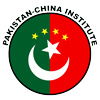Publications
Aligning Special Economic Zone Polices of Pakistan and China
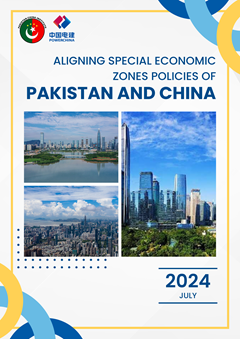
This report delves into the dynamics of Special Economic Zones (SEZs) as a catalyst for economic growth and foreign investment, with a specific focus on the contrasting experiences of China and Pakistan.
Read MorePilot ESG Reporting Framework for Renewable Energy Projects Under China-Pakistan Economic Corridor (CPEC)
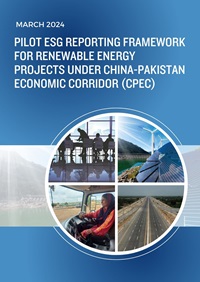
Environment, Social, and Governance (ESG) reporting has emerged as a pivotal aspect of modern business practices, gaining considerable momentum globally in recent years. This transition towards sustainable development is propelled by various factors, encompassing regulatory pressures, evolving consumer preferences, and the recognition of its positive impact on a company's bottom line.
Read MoreOverview of Pakistan’s Power Sector and its Future Outlook
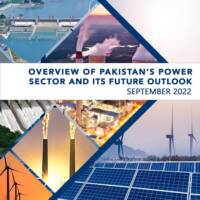
Presently Pakistan is facing increasing pressure on its resources to provide affordable access of electricity to its population. With a total consumption in 2020-21 of 121 billion kWh and electricity consumption per capita of 584 kWh, Pakistan is among those countries with lowest per capita consumption of electricity in the world. Against a total electricity generation of 143 billion kWh, the consumption represents, losses of more than 15 percent relative to total electricity generation. At the same time, provision of electricity at competitive rates to more than 24 percent population (still without electricity) is adding burden on the public- sector- run utilities to expand their infrastructure to remote areas of the country.
Read MoreDevelopment Prospects of Chinese Enterprises in Green Energy Industry in Pakistan
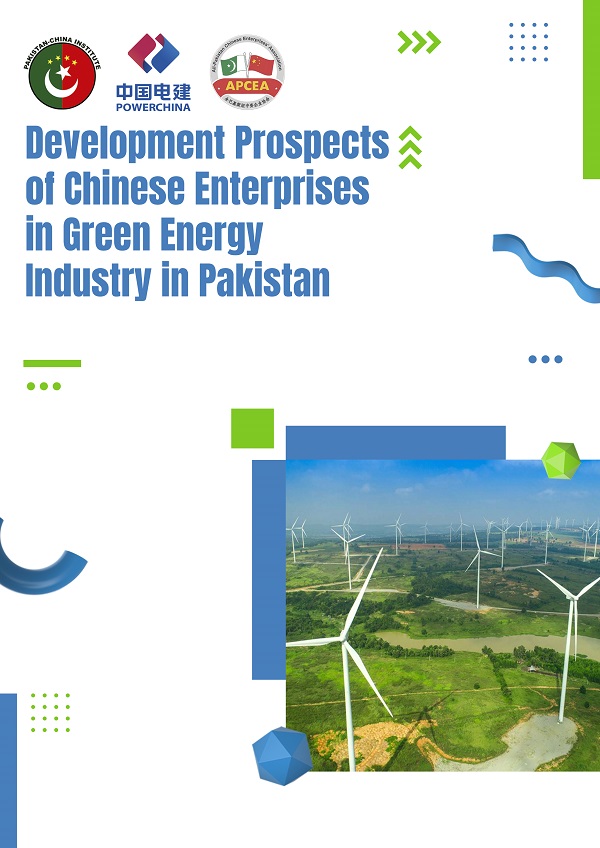
Presently Pakistan is facing increasing pressure on its resources to provide affordable access of electricity to its population. With a total consumption in 2020-21 of 121 billion kWh and electricity consumption per capita of 584 kWh, Pakistan is among those countries with lowest per capita consumption of electricity in the world. Against a total electricity generation of 143 billion kWh, the consumption represents, losses of more than 15 percent relative to total electricity generation. At the same time, provision of electricity at competitive rates to more than 24 percent population (still without electricity) is adding burden on the public- sector- run utilities to expand their infrastructure to remote areas of the country.
Read MoreCPEC Success Story: Port Qasim 1,320 MW, Coal-Fired Power Plant (Exploring Social Impact)
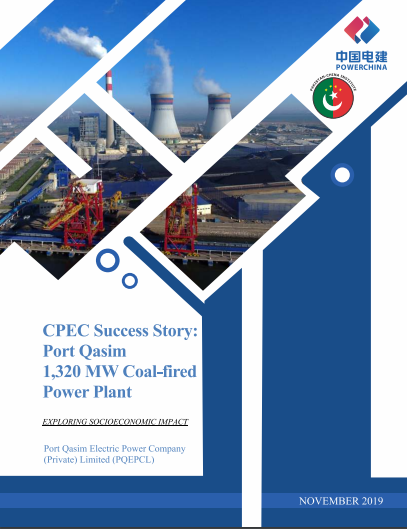
This study tries to define the implications of newly built electricity-generating power plants in Pakistan. It will not only be focused on the provision of electricity generation, but will also highlight, how the project encourages viable, long-term job evolution in their respective areas. The two prime apprehensions which used to persist among the general masses are the employment ramifications and the need to construct these mega coal-fired power plants such as that in Port Qasim under China-Pakistan Economic Corridor.
Download ReportCPEC Success Story: Port Qasim 1,320 MW, Coal-Fired Power Plant (Exploring Environmental Effects)
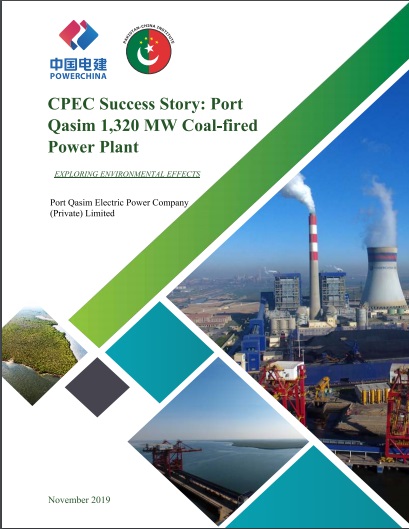
This report focuses to define the implication of electricity-generation power plants in Pakistan which are not exclusively focused on the provision of power generating, but also highlights the encouragement of viability in their respective areas. There was a prime concern among the general masses about environmental aspects of initiatives constituting under China-Pakistan Economic Corridor such as the Port Qasim Coal-fired Power Plant.
Download ReportYoulin Magazine
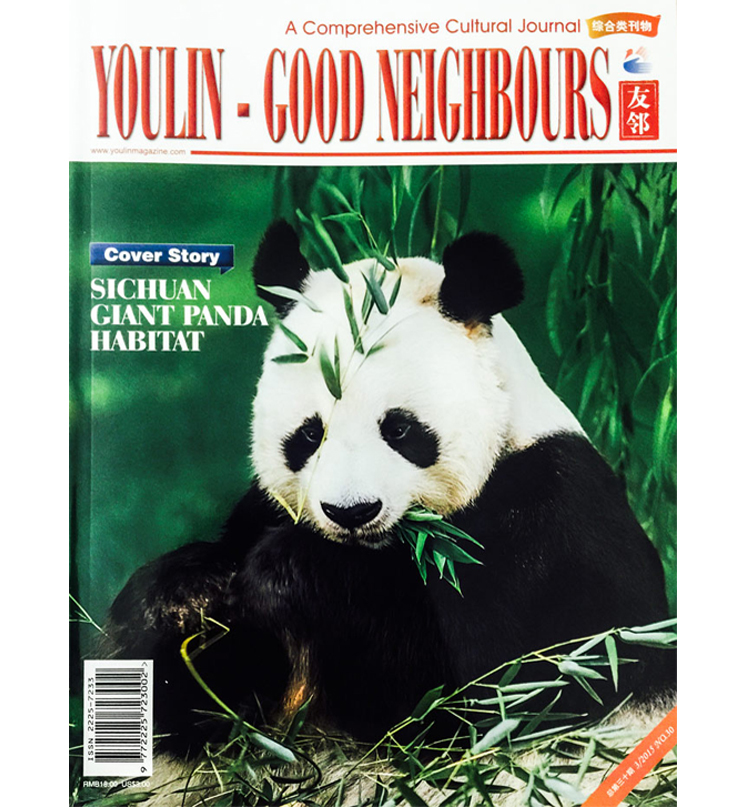
Pakistan-China Institute, in collaboration with the International Culture Exchange Association of Xinjiang, produces a monthly publication, titled ‘Youlin Magazine’. Launched in February 2012, the magazine is dedicated to developing a deeper understanding and appreciation of the rich Chinese civilization and history, among the people of Pakistan. The magazine features articles on wide spectra of Chinese society and culture, including ancient cities, geographical wonders, heritage, archeological sites, museums, classical and contemporary art, budding metropolises, diverse ethnic nationalities and both classic and contemporary offerings. It has a wide circulation in major Chinese cities as well as in Pakistan.
Website: www.youlinmagazine.com
Xi Jinping: On Governance
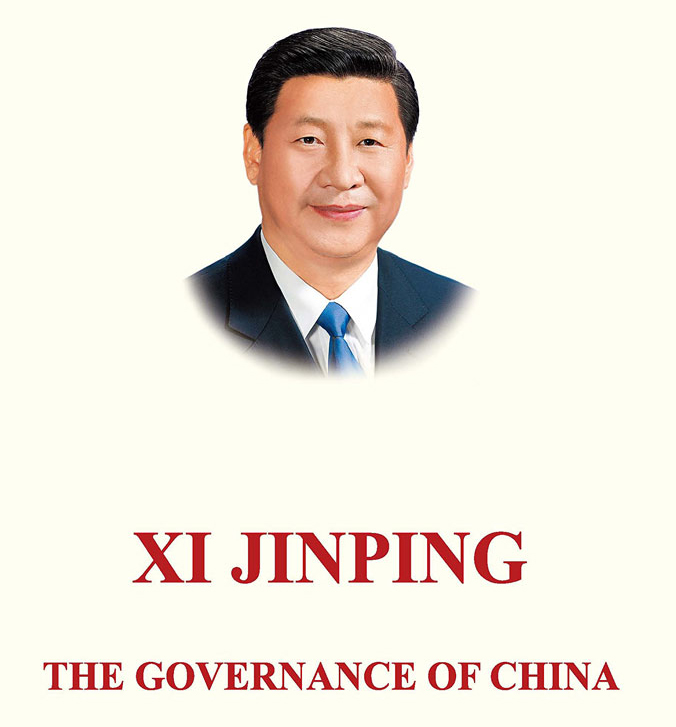
The Pakistan-China Institute, in collaboration with the Embassy of People’s Republic of China, launched the book ‘The Governance of China’ by Xi Jinping, in December 2014. This was the first time that the President’s book was launched outside China, and reflects a great honor for our institute.
Comprising of 79 speeches, talks, interviews, instructions and correspondence, ‘The Governance of China’ is a compilation of President Xi Jinping’s works from 15th November 2012 to 13th June 2014. For the readers’ understanding, each item in the book has been supplemented by relevant notes about China’s social system, its history and its culture. The book also highlights the President’s vision for the future of China and sheds light on various dimensions of China’s policies on energy, economy, technology, security and governance. The book helps to better interpret the concepts and principles of the Communist Party of China with respect to their governance and also enables the international community to comprehend the future aspirations of the Chinese, their development ideas, as well as China’s domestic and foreign policies.
Pakistan-China Institute also has the honor of publishing Urdu Version of Chinese President's book, 'Xi Jinping: The Governance of China' launched on April 14, 2017 at Prime Minister's Secretariat in Islamabad.
To China with Love
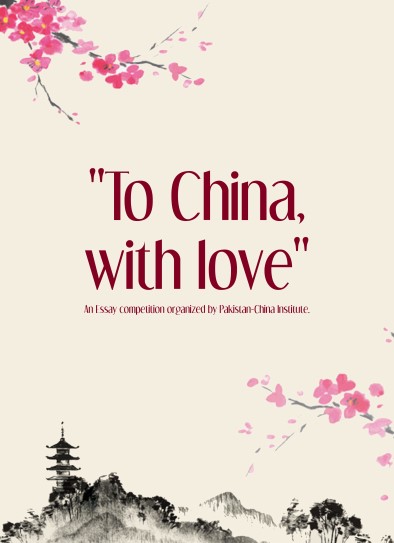
To celebrate the profound friendship between Pakistan and China, the Pakistan-China Institute, with the assistance of the Chinese Embassy, arranged an Essay Writing Competition, the topic of which was, “To China, with Love”. In a love letter to China, Pakistanis from every part of the country and all walks of life expressed both in Urdu and English, their feelings and sentiments towards China. The essays consisted of personal experiences, outlook and knowledge on China, with suggestions on how to further deepen people-to–people connections between the two countries. Winners were awarded cash prizes and top 3 position holders were taken on culturally immersive tours to two prominent Chinese cities.
Download ReportThe China–Pakistan Economic Corridor: A Case Study
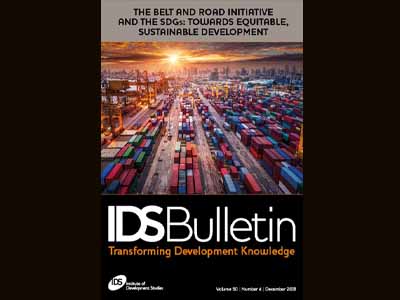
The China–Pakistan Economic Corridor (CPEC) is a multifaceted project which was formally announced during a visit by China’s president, Xi Jinping, to Pakistan in April 2015. It is an infusion of infrastructure, energy, ports, railway networks, and people-centric projects, which enhance Pakistan’s trade connectivity, export potential, and geopolitical relevance. Pakistan and China believe that the CPEC will not only complement the economic development of the two countries but will also bring peace and prosperity in less developed regions of Pakistan. The article focuses on the impact of CPEC projects comprising early harvest projects, middle and long-term plans, and social sector development initiatives including: poverty alleviation, clean water, health, education, vocational training, and agriculture. It also gauges the prospects and challenges faced by the CPEC and policy recommendations to make this project sustainable and inclusive.
Read MoreManaged transition vehicle: Financing mechanism for early phase-down of Chinese-sponsored coal plants
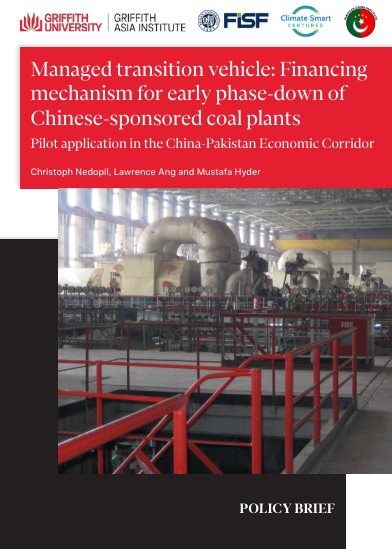
China has supported economic, social, and green
development through the Belt and Road Initiative (BRI).
After 10 successful years since the BRI’s initiation, a
new and even greener era of the BRI can be achieved. A
key opportunity will be to accelerate the green energy
transformation.
A particular challenge to utilise that opportunity lies in
simultaneously reducing emissions of existing coalfired power plants (CFPPs) and expanding alternative
green energy sources. New pathways and ambitions
have emerged to achieve the dual goals, particularly in
Pakistan as one of the key BRI countries through the
China-Pakistan Economic Corridor (CPEC).
Travels Across the Silk Road: Lessons from the Asian Borderlands
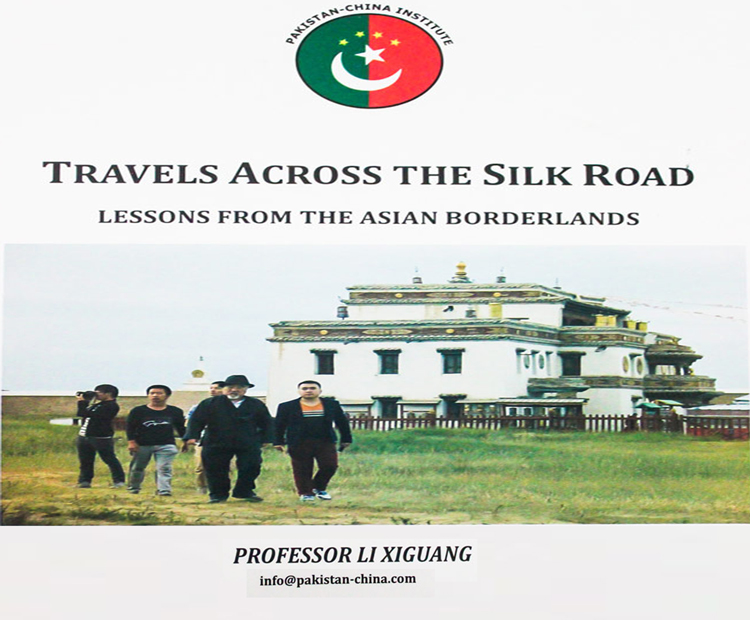
This publication, produced in collaboration with Konrad Adenauer Stiftung, is a travelogue by Professor Li Xiguang of Tsinghua University. In his travelogue, Professor Li Xiguang has recorded his experiences on a teaching seminar across the Asian borderlands with his colleagues and students.
Part travelogue, part historical record, this publication is an account of Professor Li’s teaching methods, the varied learning experiences of his students, interactions with renowned personalities, and visits to places of ancient historical and geographical significance.
Handbook on Relations between China and Pakistan
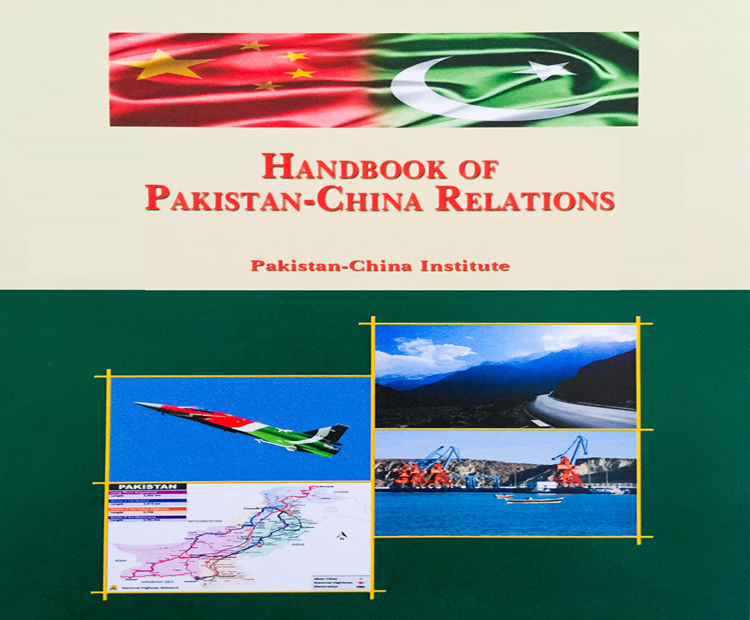
This volume, edited by Chairman of the Pakistan-China Institute Senator Mushahid Hussain, is an all-encompassing document with a comprehensive history of each aspect of bilateral relations between the two countries. Contributing authors include former and practicing diplomats, from China and Pakistan, strategists, political analysts, retired servicemen from the armed forces, and educators.
From Lahore to Yarqand

Pakistan-China Institute has had the honor of publishing an exclusive travelogue on China’s Xinjiang Region, written by Pakistan’s most renowned travelogue writer, Mustansar Hussain Tarar. The travelogue is an account of Mr. Tarar’s journey across China’s largest (by area) province, his visit to various cities in Xinjiang and interactions with the locals. He beautifully narrates the diversity of culture in this ethnically and historically rich region. Tarar, very candidly, takes his readers on a remarkable journey through the trials and tribulations of the Chinese Turkestan.
Post-Conference Book on the Islamabad Trilateral Dialogue
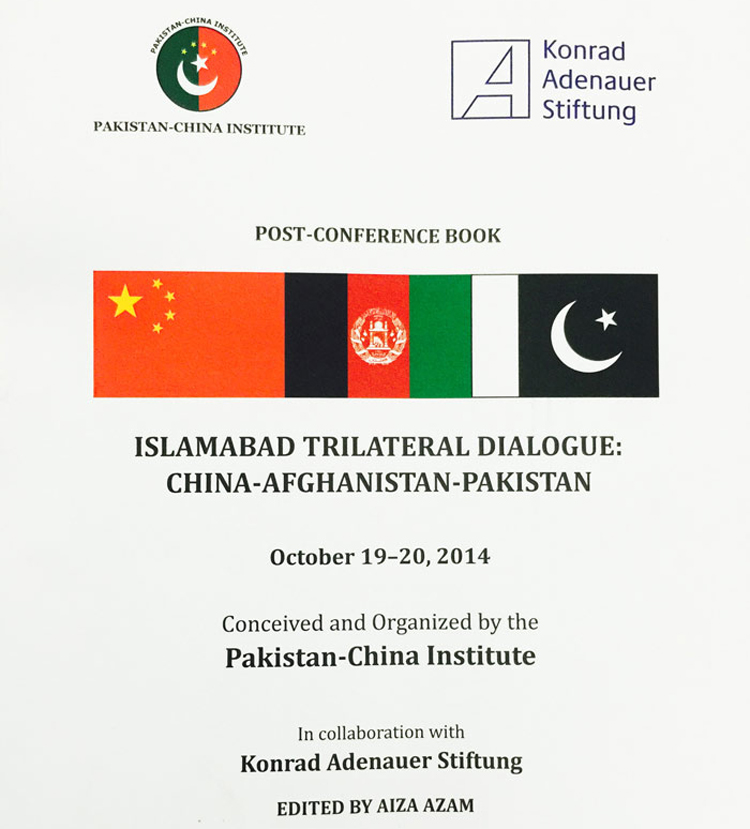
Pakistan-China Institute with assistance from Konrad Adenauer Stiftung (KAS) published a Post Conference Book on the Islamabad Trilateral Dialogue: China-Afghanistan-Pakistan, organized in October 2014. The book presents a comprehensive documentation of the proceedings of the two-day International Conference. This conference was the second in the series, after the Beijing Trilateral Dialogue of August 2013, which discussed the current situation in Afghanistan and its ramifications for the region. The Islamabad Trilateral Dialogue brought together experts, analysts, policy makers, and civil society members from all three countries, to work collectively on discussing major areas of concern for regional peace, stability and security in the wake of withdrawal of foreign forces from Afghan Soil. The book has been presented for the public record as a reference document and source material for academicians, researchers and policy makers.
